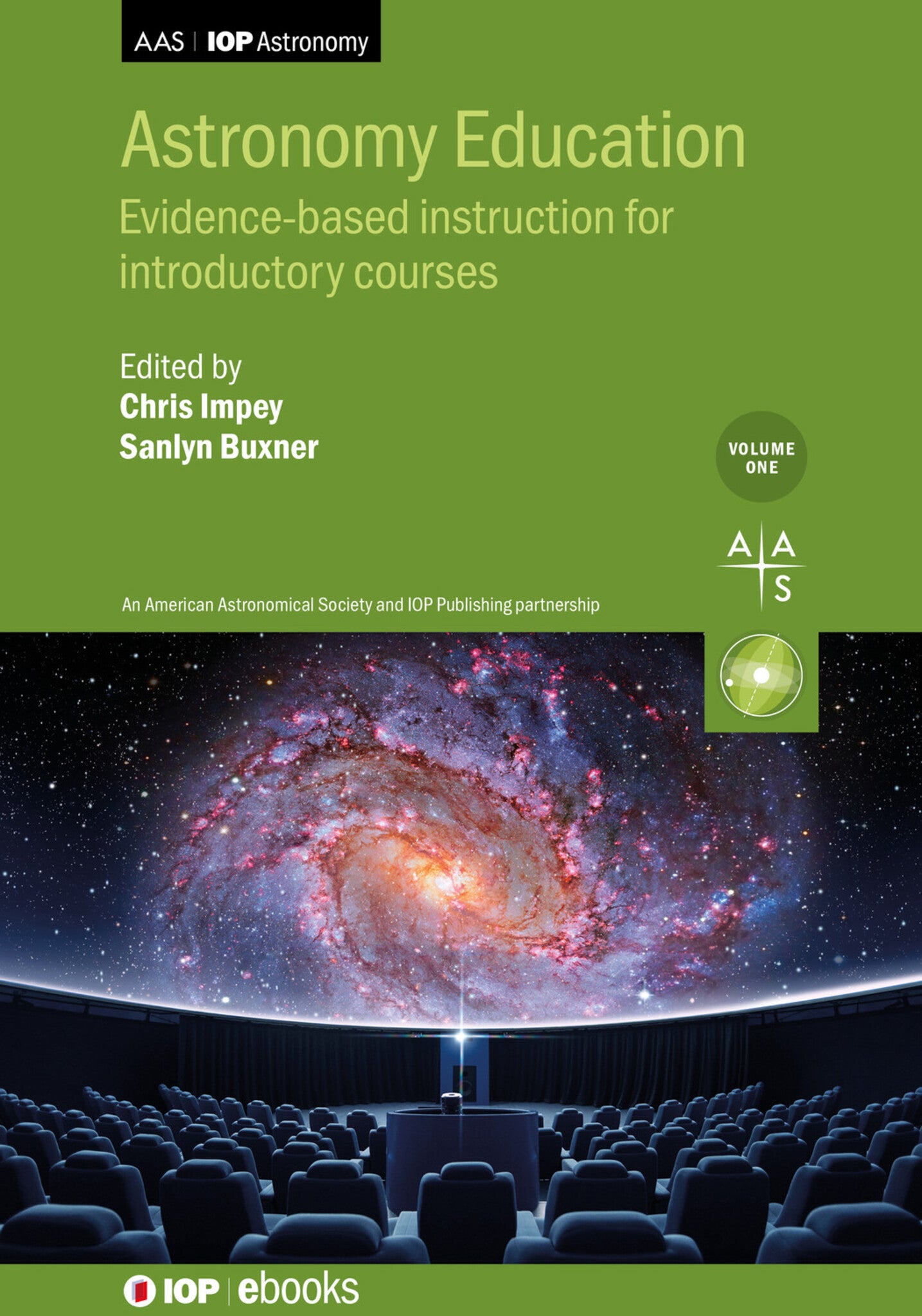We're sorry. An error has occurred
Please cancel or retry.
Astronomy Education Volume 1

Some error occured while loading the Quick View. Please close the Quick View and try reloading the page.
Couldn't load pickup availability
- Format:
-
26 November 2019

Astronomy is a popular subject for non-science majors in the United States, often representing a last formal exposure to science. Research has demonstrated the efficacy of active learning, but college astronomy instructors are often unaware of the tools and methods they can use to increase student comprehension and engagement. This is particularly true of two-year college instructors and faculty who are trained in astronomy and physics who may lack any formal instruction in teaching and learning.
This book focuses on the practical implementation of evidence-based strategies that are supported by research literature. Chapter topics include an overview of learner-centered theories and strategies for course design and implementation, the use of Lecture Tutorials, the use of technology and simulations to support learner-centered teaching, the use of research-based projects, citizen science, World Wide Telescope and planetariums in instruction, an overview of assessment, considerations for teaching at a community college, and strategies to increase the inclusivity of courses.

EDUCATION / Teaching / Subjects / Science & Technology, Educational: Physics

The research and curriculum development efforts highlighted in this chapter have
been supported by the National Science Foundation (grant Nos. 9952232, 9907755,
and 0715517) and by the generous contributions of NASA’s Exoplanet Exploration
Program and Associated Universities, Inc
This work was supported by the National Science Foundation grants #0618849 and #0920293.
This material is based upon work supported by the National Science Foundation
under grants Nos. DUE-1140440 (Bucknell WWT Labs), AST-1510021 and AST1650486 (Univ. Mass Amherst Astro 101 Projects), and DRL-1503395 and 1502798
(ThinkSpace Seasons & Moon Phases Labs). Any opinions, findings, and conclusions or recommendations expressed in this material are those of the author(s) and
do not necessarily reflect the views of the National Science Foundation. Life in the
Universe (LITU) is supported by the John Templeton Foundation under grant
number 58380
1 - Learner-centered Teaching in Astronomy
2 - Effective Course Design
3 - Lecture-tutorials in Introductory Astronomy
4 - Technology and Engagement in the University Classroom
5 - Using Simulations Interactively in the Introductory Astronomy Classroom
6 - Practical Considerations for Using a Planetarium for Astronomy Instruction
7 - Authentic Research Experiences in Astronomy to Teach the Process of Science
8 - Citizen Science in Astronomy Education
9 - WorldWide Telescope in Education
10 - Measuring Students’ Understanding in Astronomy with Research-based Assessment Tools
11 - Everyone’s Universe: Teaching Astronomy in Community Colleges
12 - Making Your Astronomy Class More Inclusive



